-
Description
-
Specification
Optolong SHO Narrowband Introduction
Optolong SHO6.5nm filter kit includes SII6.5nm, H-Alpha7nm, and OIII6.5nm narrow-band filters, generally working with astronomical monochrome cooling CCD and modified DSLR imaging in each single-channel . Corresponding with RGB channel (Ha, OIII, SII), photographers can process Hubble images by astronomical post processing software .
Extra narrowband SIICCD 6.5nm filter (Sulful II for CCD) is designed for nebula observation allowing 12nm bandwidth of light centered on a wavelength of 672nm through, and reducing the transmission of certain wavelengths of light, specifically those produced by artificial light including mercury vapor, and both high and low pressure sodium vapor lights and the unwanted natural light caused by neutral oxygen emission in our atmosphere (i.e. skyglow)
H-Alpha 7nm filter is the popular narrowband filter allowing 7nm bandwidth of light centered on a wavelength of 656nm through, and reducing the transmission of certain wavelengths of light, specifically those produced by artificial light including mercury vapor, and both high and low pressure sodium vapor lights and the unwanted natural light caused by neutral oxygen emission in our atmosphere (i.e. skyglow). Better choice of narrowband H-alpha astrophotography filter for highest contrast and revealing subtle nebula details.
Extra Narrowband OIII-CCD 6.5nm filter is designed for nebula observation allowing 6.5nm bandwidth of light centered on a wavelength of 500nm through, which corresponds to OIII emission lines, and reducing the transmission of certain wavelengths of light, specifically those produced by artificial light including mercury vapor, and both high and low pressure sodium vapor lights and the unwanted natural light caused by neutral oxygen emission in our atmosphere (i.e. skyglow).
OIII emits 495.9nm and 500.7nm and it is a blue-green colored filter. Many of images of planetary nebula and supernova remnants are taken only with H-alpha and OIII filters. They show great structural details, but have natural colors, looking like an RGB image.
Features:
Give you higher contrast and greater detailed viewing;
Decrease background noise and improve the contrast of objects;
Increase the faint nebula signal and make it to be brightness;
With narrow band filters kit, you are able to process a hubble image;
Through the optimization of the substrate and upgrading of coating technology, significantly improved the halo around the stars, especially in O3.
Referance Spectrum

※This curve is only for reference, and is not used as the final product data.
How to read the chart?
▲The horizontal axis is the Wavelength in Nanometers(nm).
▲The vertical axis is transmission in %.
▲The GREEN line shows the transmission of the OIII6.5nm filter. The H-Alpha7nm line is shown in RED. And the SII6.5nm filter line is shown in BLUE.

Coating Technology
·Multi-layers anti-reflection coating
·Non-cementing optical substrate coating
·Optolong filter adopts precision coating based on Ion-assisted deposition coating technology for durability and resistance to scratching, as well as stability on CWL(central wavelength) no deviation affected by temperature change.
·Planetary rotation system offers precision and homogeneity of coatings ensuring high value on transmission of pass-band and Optical density of off-band.

Gloable Price
| IMPROVED SHO6.5nm filters kit(3pcs) Gloable MAP | Unit Price in USD dollars |
| 1.25"(1 1/4" mounted) | $465.00 |
| 2" mounted | $720.00 |
| Φ31*2.0mm | $540.00 |
| Φ31*2.0mm | $557.00 |
| Φ50*3.0mm | $.00 |
| 50*50*3.0mm | $.00 |
Package


2019 NEW package


IMPROVED SHO6.5nm Filters Performance
Ⅰ. NGC7000- The North America Nebula © Francesco Battistella-AstroAtlas
Technical Information:
Telescope: AIRY APO 130T Primalucelab
Mount: Paramount MyT - Software Bisque
Camera: QHYCCD QHY9
Filter: Optolong H-a 7nm, OIII 6.5nm
Frames: H-a: 49x900s -- OIII: 36x900s
Total Integration: 21,25 Hours
Software: SGP – TheSkyX – PHD2 – DSS – PixInsight – CS6
Location: Noventa di Piave (Venice) 4 meter above sea level – ITALY
Environment Temperature: About 23°C
Relative Humidity: 89%
Date: 26.06.20 - 27.06.20 - 04.07.20 - 25.08.20 - 27.08.20
NOTE: High Humidity and Sky Bortle: 5
Ⅱ. The Pelican Nebula © Astrodoc Ron Brecher
Tekkies:
Sky-Watcher Esprit 150 f/7 refractor, QHY 16200-A camera, Optolong Ha, O3 and S2 filters, Paramount MX. Acquisition with TheSkyX unguided. Focus with Optec DirectSync motor and controller. Automation with CCDCommander. Equipment control with PrimaLuce Labs Eagle 3 Pro computer. All pre-processing and processing in PixInsight. Acquired from my SkyShed in Guelph. No Moon, average to above average transparency and average seeing. Data acquired September 3-21, 2020.
11x10m S2, 19x10m Ha, and 9x10m O3 (Total = 6hr00m)
Image scale 1.15 arcsec per pixel
Data Reduction and Cleanup
The WeightedBatchPreProcessing script was used to perform calibration, cosmetic correction, registration and integration of all frames.
Chrominance
III. NGC 7000 The North America and IC 5070 The Pelican Nebulae © José Jiménez
NGC 7000 The North America and IC 5070 The Pelican Nebulae
La Jonquera - Girona
SHO
ZWO ASI1600MM PRO & Askar FRA400mm
8 x 900" Optolong H-Alpha
8 x 900" Optolong SII
8 x 900" Optolong OIII
Sky Watcher AZ-EQ6 PRO mount
Guide camera ZWO ASI 120MM
RGB
ZWO ASI1183MC PRO & WO SpaceCat51
8 x 900" Optolong L-eXtreme
Sky Watcher AZ GTI Mount
Guide camera ZWO ASI 462MC
Calibrated, stacked and processed with Pixinsight, and final tweaks with Lightroom
Ⅳ. Bubble Nebula | NGC 7635© Luca Fornaciari Astrophotography
Bubble Nebula | NGC 7635 | Narrowband shots in Hubble Palette SHO (Sii:Ha:Oiii)
Tecnosky RC8’’ f/8 Carbon Deluxe on AZEQ6-GT | Qhyccd 163m | Optolong Astronomy Filter Narrowband filter
Ha: 76x300’’ | Oiii: 64x300’’ | Sii: 85x300’’
Elaboration with Pixinsight and Adobe Photoshop 2020.
Website: www.lucafornaciarifotografia.com
Frames captured from Carl Sagan Observatory in Maranello (Italy).
Bortle 5 / SQM
V. Fireworks in Monoceros© Terry Hancock
Technical Details
Captured and processed by: Terry Hancock
Location: GrandMesaObservatory.com Purdy Mesa, Colorado
November 1, 2, 3, 4th 2019
HA 430 min 43 x 600 sec
OIII 340 min 34 x 600 sec
SII 300 min 30 x 600 sec
Narrowband Filters by Optolong
Camera: QHY16200A
Gain 0, Offset 130 Calibrated with Dark and Bias Frames no Flat.
Optics: William Optics Redcat 51 APO @ F4.9
EQ Mount: Paramount ME
Image Acquisition software Maxim DL6
Pre Processing in Pixinsight
Post Processed in Photoshop CC
Starnet (star removal)
The Rosette Nebula (also known as Caldwell 49)This active star forming nebula lies in the Monoceros Constellation (the Unicorn) only 5,200 light-years distant. The dense cloud of hydrogen has been condensing to form new stars and is thought to be very similar to the environment that gave birth to our own Solar System. As the new stars ignite they blow off their shrouds and irradiate thier surroundings and cause the hydrogen to glow from the ionizing radiation. Like dust being blown by the wind, these newborns push the hydrogen and dust away where it collapses under gravity to accelerate the formation of yet more stars, excavating the inner region of the nebula over time.
Ⅵ. IC1795 & NGC896-The Fish Head Nebula © Francesco Battistella-AstroAtlas
Technical Information:
Telescope: AIRY APO 130T Primalucelab
Mount: Paramount MyT - Software Bisque
Camera: QHYCCD QHY9
Filter: Optolong H-a 7nm, OIII 6.5nm, SII 6.5nm
Frames: H-a: 40x900s -- OIII: 46x900s -- SII: 36x900s
Total Integration: 30.5 Hours
Software: SGP – TheSkyX – PHD2 – DSS – PixInsight – CS6
Location: AstroAtlas Observatory - Noventa di Piave (Venice) 4 meter above sea level – ITALY
Environment Temperature: About 23°C
Relative Humidity: 90%
Date: 11.09.20 - 12.09.20 - 13.09.20 - 14.09.20 - 15.09.20 - 17.09.20
Ⅶ. NGC6888-The Crescent Nebula © Francesco Battistella-AstroAtlas
Technical Information:
Telescope: AIRY APO 130T PrimaLuceLab
Mount: Paramount MyT
Camera: QHYCCD QHY9
Filter: Optolong H-a 7nm, OIII 6.5nm, SII 6.5nm
Frames: H-a: 40x900s -- OIII: 40x900s -- SII:32x900s
Total Integration: 28 Hours
Software: SGP – TheSkyX – PHD2 – DSS -PixInsight – CS6
Location: Noventa di Piave (Venice) 4 meter above sea level – ITALY
Environment Temperature: About 19°C
Relative Humidity: 89%
Date: 24.03.20 - 06.04.20 - 09.04.20 - 10.04.20 - 20.05.20 - 26.05.20 - 27.05.20 - 11.06.20 - 12.06.20
NOTE: Bortle Sky 5

Warm prompt
●About color: due to the influence of ambient light, color difference of the display and flash photography, the color of the product may have some color difference. Detailed color is in accordana with the final product.
●About coating: the interference filter will show different colors under different light, which is a normal phenomenon. Please refer to the material object.
●About the style: in order to improve the product, the change of design/appearance/parameters has not been updated in time. Please see the subject produce.
●About the description: the series of this product have the same material, technology and design, different sizes only, please note.
Optolong improved SHO6.5nm filters feature:
★1.25"(1 1/4" mounted), 2" mounted
★Φ31*2.0mm, Φ36*2.0mm

















